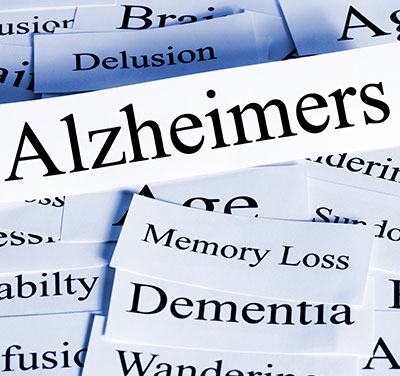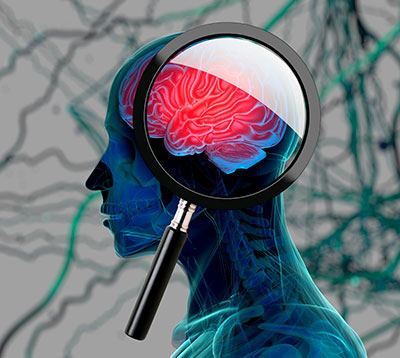What Is the Connection Between Testosterone and Alzheimer’s Disease?
Current research suggests that there is a link between your testosterone level and your risk of developing Alzheimer’s disease or other forms of dementia.

Alzheimer’s disease is a type of dementia that affects memory, thinking, and behavior. Symptoms eventually grow severe enough to interfere with daily tasks. According to the Alzheimer’s Association, Alzheimer’s is the most common cause of dementia, a general term for memory loss and other cognitive abilities serious enough to interfere with daily life. Alzheimer’s disease accounts for 60-80% of dementia cases.
There is increasing evidence that there is a link between low testosterone and the risk of developing Alzheimer’s disease.
In 2010, researchers from the United States and Hong Kong studied a group of 47 older Chinese men with mild cognitive impairment (MCI).
People with this condition have some memory issues but can usually manage the skills of everyday living.
However, MCI is a major risk factor for developing Alzheimer’s dementia. All of the men’s testosterone levels were measured at the start of the study. One year later, all of the men in the study were evaluated for memory loss. Ten men had been diagnosed with Alzheimer’s disease. All of those ten had "significantly lower" testosterone levels than at the beginning of the study.
The study, which appeared in the Journal of Alzheimer’s Disease, was small, but the findings certainly suggest low testosterone may be a factor of the rapid cognitive decline seen in older men with early memory loss.
The study is not the first to suggest a protective role for testosterone in Alzheimer’s disease. In 2013, a study by French researchers found that low testosterone levels were associated with increased dementia risk in men. This risk was greater in men over age 80. It was also higher in men with higher levels of education.
Other research indicates that the link between Alzheimer’s and testosterone is not limited to men. The results of an Australian study that were presented at the 2013 annual meeting of the Endocrine Society found that after 26 weeks of treatment with testosterone, women showed significant improvement in verbal learning and memory over those in the placebo group.
The study indicates that testosterone has a role in optimizing learning and memory in women, just as it does in men. In fact, it is possible that one of the reasons that Alzheimer’s dementia is more common in women than men is because of their naturally lower levels of testosterone.
There is definitely a connection between testosterone levels and the risk of Alzheimer’s dementia.
Testosterone and Brain Function
Just what is the connection between testosterone and brain function?
It is not uncommon for men with low testosterone to experience cognitive issues, often described as “brain fog.”
Among the many benefits of testosterone is that it plays a major role in red cell production. Red blood cells carry oxygen to all of your vital organs, including the brain. As red blood cell production decreases with age-related testosterone decline, the brain is profused with less oxygen, and that is one reason that could account for the cognitive difficulties experienced by older men. Red blood cell production and oxygenation of brain cells are not the only way that testosterone contributes to cognition and memory.
Low testosterone also increases your cortisol level, which impacts brain function. Cortisol is commonly known as the “stress hormone.” You may have found yourself saying from time to time that "I was so stressed out I could not think clearly." As it turns out, that is not just an expression.
As you are stressed, cortisol rises. Men with low testosterone can have chronically high cortisol levels, which can cause issues with memory, mental clarity, concentration, and other cognitive processes.
In addition:
- Men with low testosterone tend to have cardiovascular disease or issues with blood flow. If blood cannot flow to the brain properly, dementia can develop.
- Similarly, low testosterone is also linked to heart disease and stroke, which are also known risk factors for the onset of Alzheimer’s dementia.
- Finally, low testosterone causes other issues that can impair brain function, such as fatigue, poor sleep, anxiety, and depression.
Testosterone and Memory
Difficulty with memory as we age is not uncommon. As we age, our ability to learn new things slows. It becomes harder for us to process and retain new information, and details often become fuzzy. At the very least, these changes bring on so-called "senior moments such as walking into a room and forgetting why you did or making a phone call only to forget who you just dialed. At their worst, the memory issues that come with age can be a precursor to Alzheimer’s disease or other forms of dementia.
The same age when memory issues seem to appear corresponds quite closely with when testosterone levels are at their lowest. Could there be a relationship between age-related testosterone decline and memory loss? Scientists seem to think so. According to the newsletter, Harvard’s Men’s Health Watch studies have found several connections between testosterone, memory, and cognition.
For instance, higher testosterone levels in midlife have been linked to better preservation of tissue in some parts of the brain. And in older men, higher testosterone levels have been associated with better performance on cognitive tests.
Another study which was also presented at an annual meeting of the Endocrine Society, this time in 1998, found a definite link between testosterone replacement therapy and improvements in spatial and verbal memory in older men. Men in the study were between the ages of 52 and 79. Those in the active group received 100 mg of testosterone enanthate, a dose that brought their circulating hormone levels up to the range of “healthy young men.”
Prior to the start of treatment and twice during treatment, participants were given a battery of tests to measure memory abilities. The researchers concluded, “Men receiving testosterone treatment experienced significant improvements in verbal and spatial memory compared to those in the control group.”
Is There a Link Between the Risk of Alzheimer’s and Low Testosterone?
The links and the studies we have mentioned so far give credence to the idea that there is a connection between your testosterone level and your risk of developing Alzheimer’s disease. They also suggest the idea of using testosterone as a treatment for memory disorders such as Alzheimer’s disease."
Studies have shown that men and women with low testosterone are at higher risk of developing Alzheimer’s disease.
Can Testosterone Replacement Lower Your Risk of Alzheimer’s Disease?
Research certainly suggests that testosterone replacement therapy could lower your risk of developing Alzheimer’s.
In 2005 a study published in the Archives of Neurology concluded that testosterone therapy applied daily as a cream leads to improved quality of life in men with mild to moderate forms of Alzheimer’s disease. In this small study, a total of 38 elderly men (22 healthy controls and 16 diagnosed with Alzheimer’s) received the daily testosterone balm, or a placebo, for 24 weeks, during which time the scientists first gathered quality-of-life data.
Then, at the end of the study, the researchers tested participants for serum hormones, cognitive ability, and neuropsychiatric symptoms. The researchers reported that caregivers found AD patients did better who were given the testosterone.
In one of the most significant studies on testosterone and Alzheimer’s disease, a 2006 study showed a direct connection between testosterone loss and the development of Alzheimer’s type dementia in mice. The same study also found that testosterone treatment slows the progression of the disease.
The study published in The Journal of Neuroscience suggested that testosterone-based hormone therapy can be useful in the treatment and prevention of Alzheimer’s disease in aging men.
"We’ve known that low testosterone is a risk factor for Alzheimer’s disease, but now we know why," said Christian Pike, senior author and associate professor at the Leonard Davis School of Gerontology at USC. "The implication for humans is that testosterone therapy might one day be able to block the development of the disease."
What Does the Research Say About Testosterone and Alzheimer’s Disease?
The lead author of the 2010 study mentioned above, John E. Morley, MD, director, division of geriatric medicine, Saint Louis University, said, "Having low testosterone may make you more vulnerable to Alzheimer’s disease. The take-home message is we should pay more attention to low testosterone, particularly in people who have memory problems or other signs of cognitive impairment."
In addition to those already mentioned in this article, a 2015 "meta-analysis" published in Cellular and Molecular Neurobiology concluded, “This meta-analysis supports that low plasma testosterone level is significantly associated with increased risk of Alzheimer’s disease in the elderly men. Low testosterone level is a risk factor of worse cognitive function in the elderly men.”
And, in 2016, a randomized, placebo-controlled, crossover study of men with subjective memory complaints and low testosterone levels found that testosterone treatment significantly improved performance on various measures of cognitive functioning. The study published in CNS & Neurological Disorders – Drug Targets concluded that testosterone therapy in such memory-impaired men with low testosterone showed "measurable global improvements in cognitive function."
Studies have shown that testosterone replacement therapy improves cognition and may lower the risk of Alzheimer’s disease.
Now that you know a little bit more about the link between testosterone brain function and the risk of Alzheimer’s disease, why not take a minute to contact us and learn more about how hormone replacement therapy can improve your quality of life?




